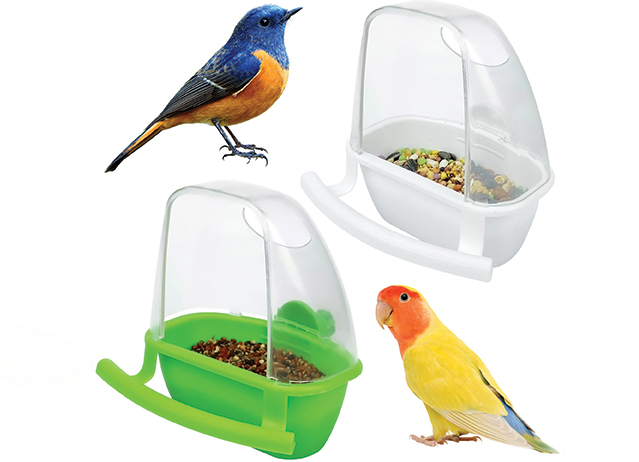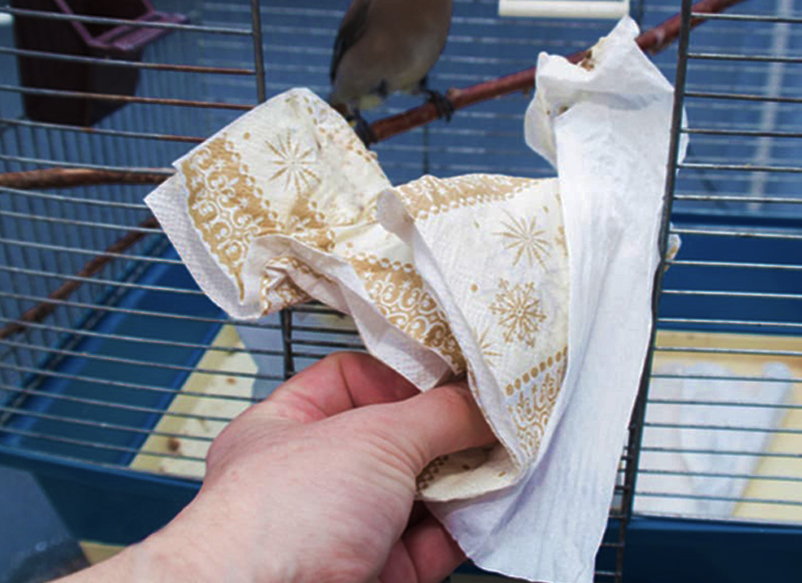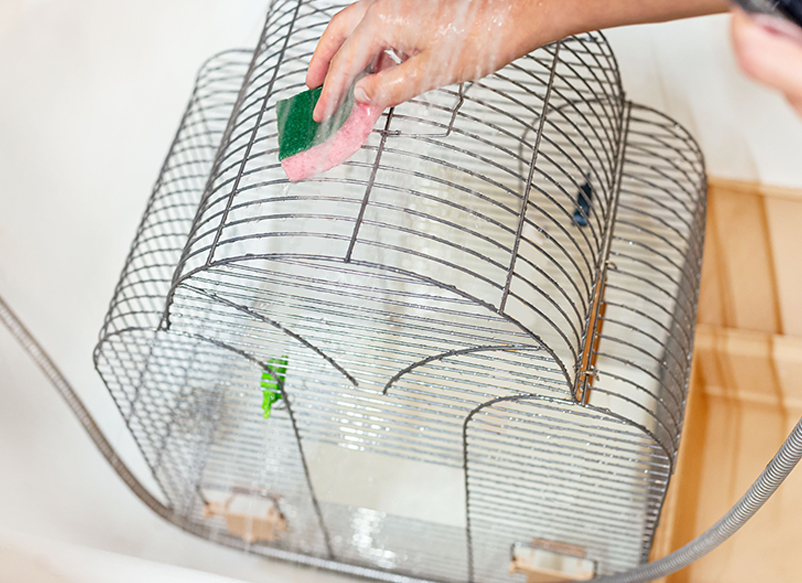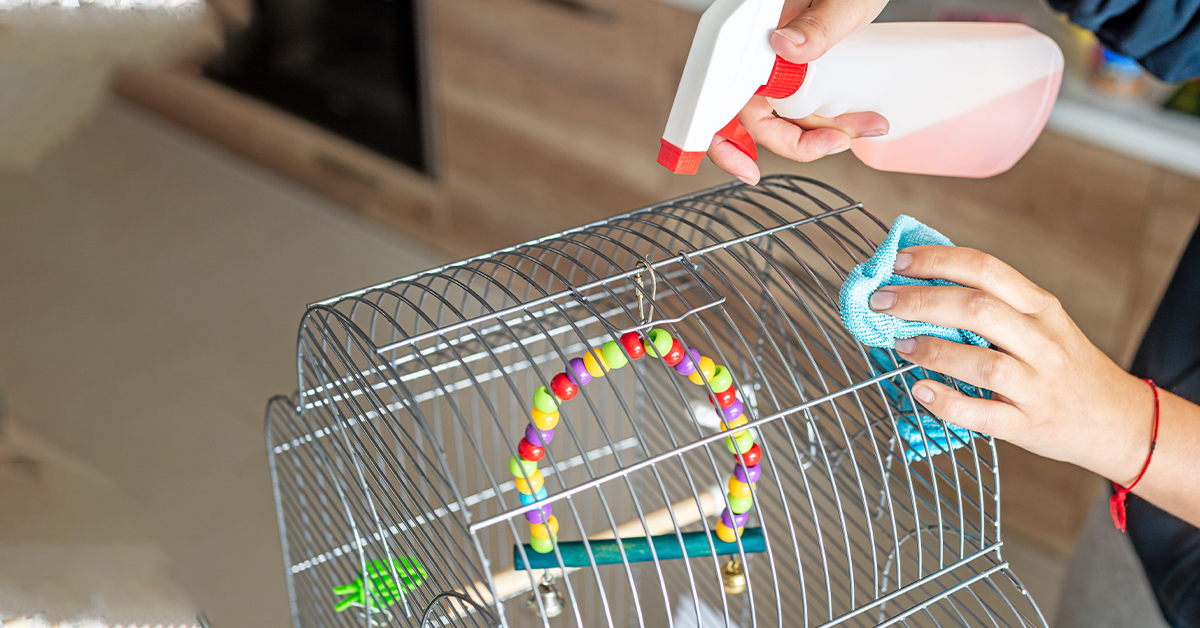Cleaning bird cage is very important to the health of parrots and other smaller birds as they are most vulnerable when their home is dirty and not cleaned often. All birds must be healthy, not only by being clean but by having a decent place to sleep and consume their food. If you keep a cage dirty, there is a risk to your health as airborne microorganisms and bacteria can spread through any of your homes.
Considering this, cleaning a bird cage should not be a task you despise but rather a necessary thing you do to keep everyone safe and healthy. But indeed, while daily spot cleaning is necessary, how often do you have to clean the cage? Is it just a check-up or does it have to be done at a given time Let’s go through some best practices for a safe and clean habitat for your feathered friends – maintain a healthy environment for both your birds and your house.
In addition to daily cleaning, you want to move towards a deep scrub once every week. This means removing all accessories, hand-washing them with bird-safe cleaners, and then disinfecting all surfaces of the cage. Monthly, consider having an overall deep cleaning wherein you see to it that everything checks for tear and wear in every aspect to ensure that everything is safe for your birds. That’s proactive not only in terms of hygiene but making the quality of life for your birds as good as it can be through a safe and stimulating environment.
How Often Should I Clean My Bird Cage?
The recurrence at which you should cleaning bird cage relies upon a few elements, including the size of the cage, the number of birds you have, and the types of birds being referred to. For instance, a small bird cage will get dirty rapidly, while a huge one that houses a solitary, large bird cage will remain cleaner for longer. While these are great beginning rules, things are not excessively straightforward.
The best way to deal with take is to clean the enclosure every day, week by week, and month to month. How much cleaning you do every day will contrast with the one you do consistently – this is the way it should seem to be:
Daily Cleaning Bird Cage:
- Eliminate any filthy or wet sheet material, like paper or enclosure liners. These can get splashed and foul rapidly, so really look at them day to day and change them depending on the situation. As you get more work on, supplanting these will just take you a couple of moments.

- Change the food and water dishes daily for new food and clean water. This is an important part of bird care. Don’t let food rotten and water remain unchanged.
- Clean the cage area for any droppings, uneaten food, or berries. Simply a speedy scoop and clean will eliminate every one of the free quills and quickly make the cage clean.
Weekly Cleaning Bird Cage:
One time per week, you should play out a more exhaustive cleaning bird cage. This should be done carefully and patiently as it will take longer.
- The cage should be empty of all toys, perches, and accessories. These will only complicate matters.
- Remove all bedding materials and replace them with new ones.
- Take out the bird and spot it in a completely safe region.
- Use water and a mild pet-friendly soap to clean all toys, perches, and other accessories for the cage. Drain them completely.
- Using a bird-safe disinfectant or a one-to-one mixture of white vinegar and water, clean all surfaces of the cage, including the bars and trays.
- Wash the cage properly to eliminate any remaining cleaning arrangements.
- Let the cage dry before putting again your bird and its possessions.
Monthly Cleaning Bird Cage:
One time each month, consider doing a greater profound clean. You should take as the need might arise to ensure everything is perfectly spotless.
- Utilize a bird-safe sanitizer to completely clean the enclosure.
- Wash the enclosure and permit it to air dry. Keep in mind that bacteria can easily grow in a damp cage.
- Clean and examine all toys, roosts, and adornments.
- Eliminate your bird and all embellishments from the enclosure.
- Take the enclosure outside (if conceivable) and hose it down for a careful cleaning.
Continuously guarantee that the cleaning items you use are ok for birds and that you wash all surfaces and frills completely to eliminate any compound buildup. Normal cleaning and upkeep keep your bird’s current circumstance sterile as well as assist with forestalling the development of unsafe microorganisms and parasites. Additionally, it provides an opportunity to examine the enclosure for any mileage indicators that may require correction or replacement. Remember that individual conditions can fluctuate, so be mindful of your bird’s needs and vary the cleaning schedule as necessary to maintain a perfect and solid living space for your plump companion.
The Importance of Large Bird Cage Regular Cleaning
Cleaning a large birdcage is essential for the health and happiness of birds. A dirty cage can cause several problems, including parasites and respiratory infections. Cleaning bird cage will not only prevent these problems but also create a stimulating environment that encourages natural behaviors in birds, thus reducing stress. By creating an environment that’s clean and appealing, you are making a haven for your birds, and it contributes to overall longevity.
Effective Cleaning Process
Remove the birds from the cage, and everything that is an accessory like perches, feeding dishes, and toys when you’re cleaning. Cleaning bird cage should include scrubbing the cage surfaces using a non-toxic bird-safe cleaner; special attention must be focused on the corners of corners, which have been seen to collect waste. Rinse in warm water to remove and clean out the residues. After it has been dried, replace all the accessories and line the bottom with fresh newspaper or cage liners. Create a routine schedule that is performed daily in spot cleaning and one major clean-up every week for your environment to be hygienic, hence showing that you are taking good care of your birds’ health and well-being.

The Importance of Cleaning a Small Bird Cage
Health Care Important Message It is vital to clean your small bird cage since a dirty cage can cause health problems such as respiratory infections and the build-up of bad bacteria. Not only will cleaning keep your bird safe but greatly help in its well-being. A cleaned cage offers a good environment, which promotes natural behaviors; hence, it prevents them from getting stressed out and keeps your pet active.
Effective Cleaning Steps
For an effective cleaning of the small bird cage, you will first need to remove the bird as well as its accessories such as food and water dishes, perches, and any other toys. After that, clean all surfaces using a bird-safe and non-toxic cleaner while scrubbing the corners and crevices where waste can accumulate behind. Continue and finish off the cage by rinsing it completely with warm water to ensure that all the residues are washed off. Replace the accessories, and cover the bottom of the cage using fresh newspaper or liners. The daily spot cleaning bird cage must be done on a routine basis while the weekly deep cleaning is carried out for a safe and comfortable habitat for your bird.

Essential Tips for Cleaning Your Bird Cage Cover
Cleaning bird cage cover is the last thing to do when taking care of a bird; however, after a certain period, covers can gather dust, feathers, and droppings, and harbor dangerous bacteria and allergens. To clean the cover properly, one should remove it from the cage, then go outside to the area where one has no plants and shake out the loose debris. If the cover is machine washable, follow the manufacturer’s guidelines on cleaning bird cages, usually gently and with a mild detergent. When hand-washing covers, clean with warm water and get at any persistent stains using bird-safe soap. Make sure to rinse well so that there is no residue of soap left on the cover. After cleaning, the cover must be properly air-dried and then returned to the cage. The dirt on the cover must be considered clean to have a neat overall view of the room and avoid growing more dirt in the enclosure to maintain a sound health condition in keeping your bird home.
Cleaning in the bird cage is also essential to your pet’s overall health and well-being. Ideally, there should be daily spot cleaning bird cage to remove droppings, uneaten food, and wet bedding since these are significant contributors to the bacteria build-up in the cage environment. However, more thorough cleaning is done once a week, where it has to begin with the emptiness of the cage and accessories washing, and disinfecting all surfaces of it. Consider a deep clean once a month, in which you take everything outside for a more extensive scrub. Scale according to the number of birds you have and their particular needs to maintain your habitat as a healthy one.
Related: Can a Parrot Get Dehydrated?

